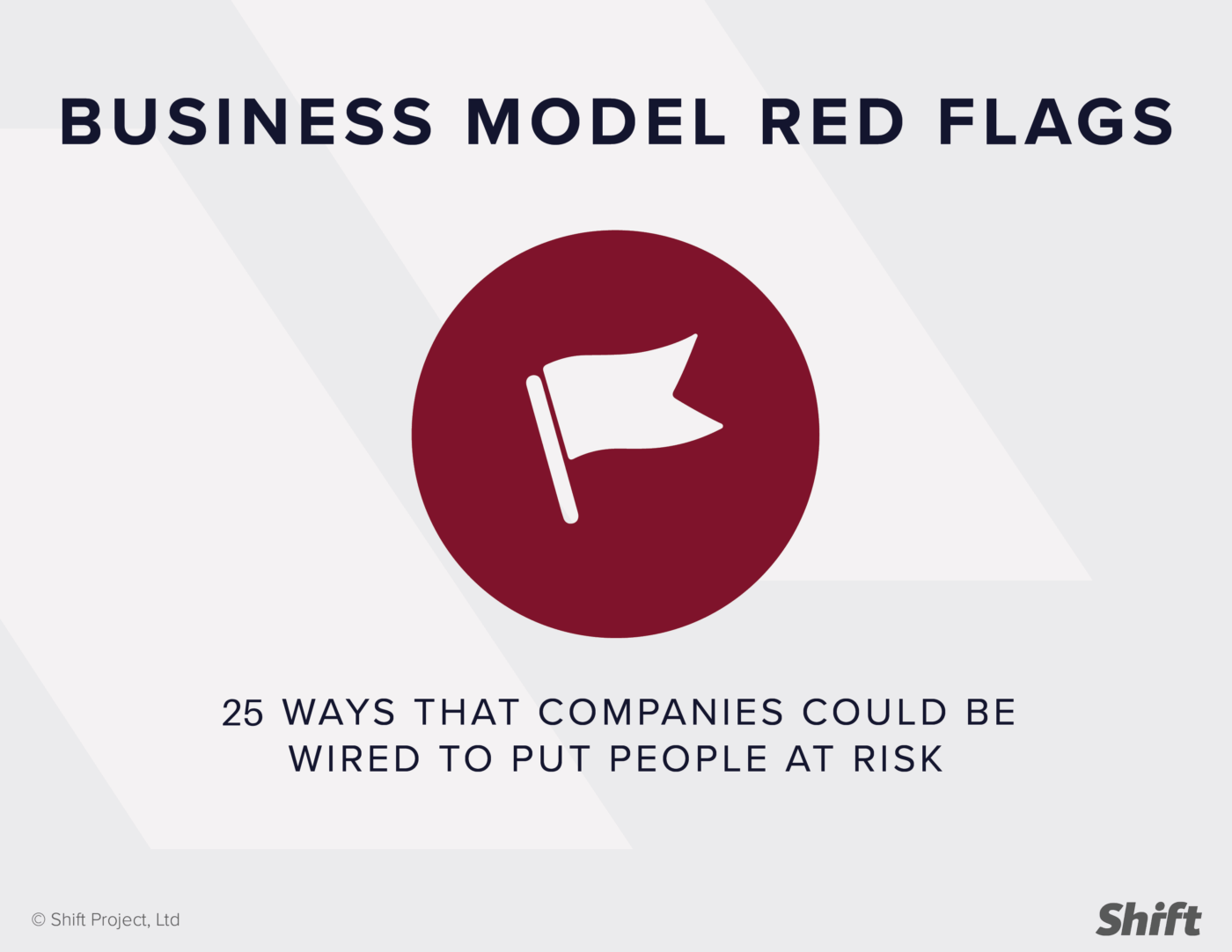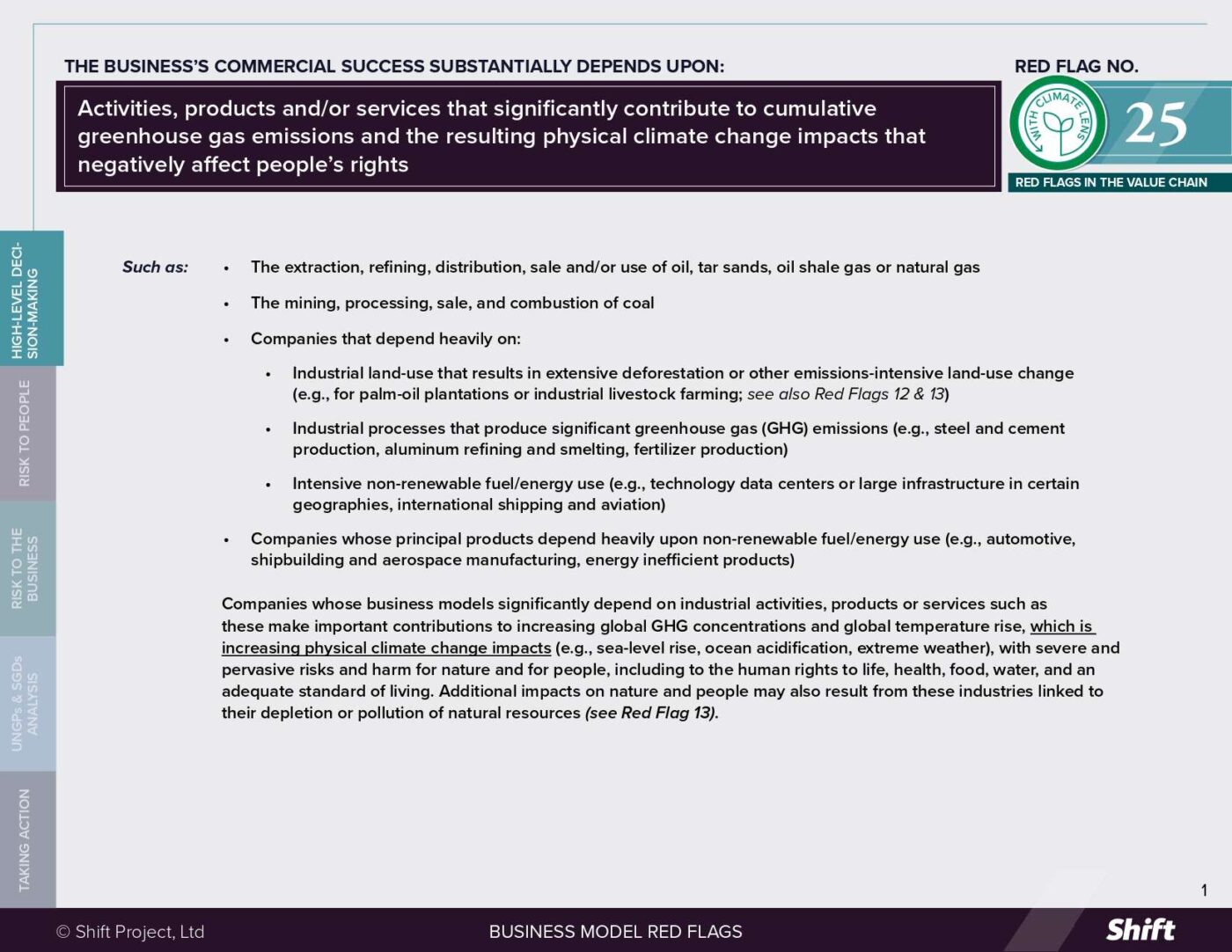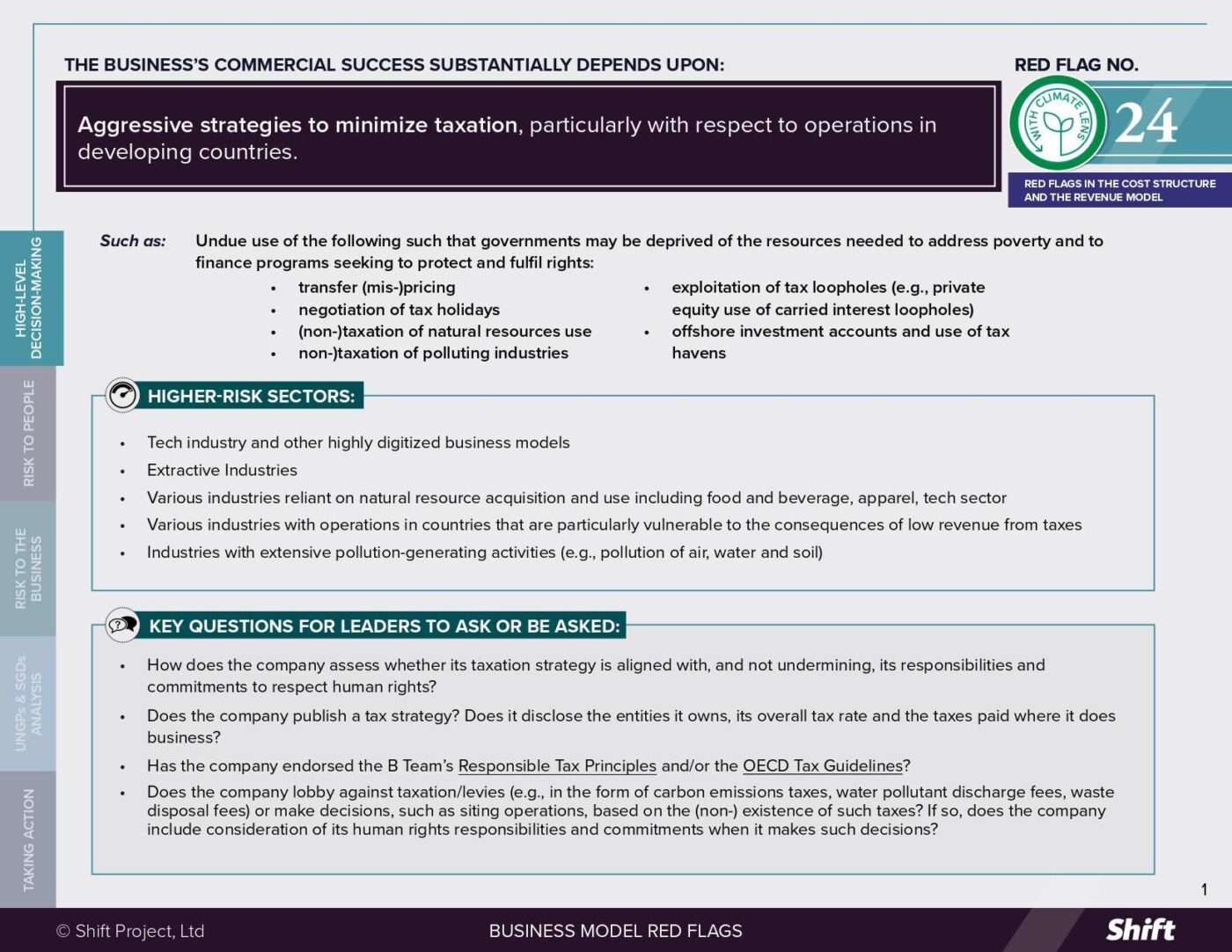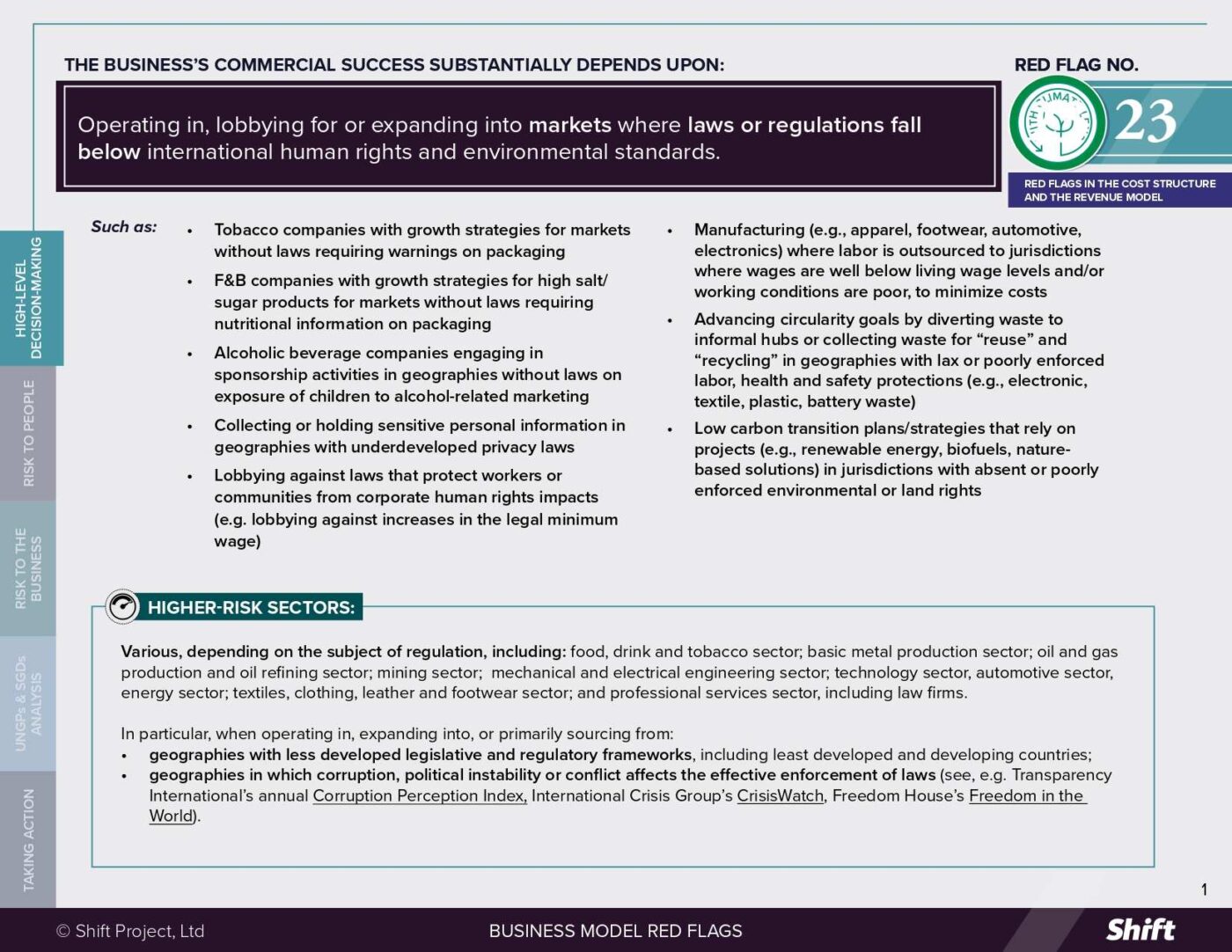“SMEs lack the resources and expertise to manage human rights issues.”
“They’re too focused on small margins to invest in respecting people.”
“SMEs don’t have any leverage.”
“Without regulatory and reputational concerns, there’s no business case for small companies to care about human rights.”
“How can large multinational companies possibly respect human rights when faced with so many disinterested SMEs in their value chain?”
These refrains will be familiar to anyone with a passing interest in business and human rights. But our recent work with leading small and medium enterprises (SMEs) suggests they are wide of the mark. In fact, small and medium sized businesses can boast some significant advantages over their larger counterparts when it comes to realizing their responsibility to respect human rights. These include:
A focus on quality of relationships with business partners
SMEs tend to have fewer suppliers and customers, which enables deeper and better-quality relationships. Not only is it more feasible for SMEs to map the businesses in their supply chains, it is easier and more desirable to get to know them. From our discussions with SMEs interested in respecting human rights, we learned they tend to spend a lot more time selecting business partners that are the right fit, putting more up-front investment into finding those who share their values, and will rise with them to the standards they aspire to.
The preference for longer-term relationships tends to make them less transactional, and allows greater scope to integrate human rights issues. Because of their diversity, and often detailed knowledge of local contexts, SMEs may be better able to understand the idiosyncrasies of smaller business partners. Their smaller scale and inclination towards bespoke relationships can lead small businesses to engage directly with suppliers and their workers, in addition to their social audit and certification practices.
These stronger, more nuanced relationships can reap human rights rewards. Some of the small businesses we talk to report that suppliers proactively bring up (and seek to work together to address) issues like child labor, rather than claiming full compliance with buyers’ standards and hiding the problem.

Shift Advisor Anna Triponel presenting a workshop to SMEs, in collaboration with the International Organisation of Employers. Photo courtesy of IOE
A need to think creatively about leverage
SMEs often lack the cold, hard commercial leverage of larger multi-nationals, and must think more creatively. The business and human rights community talks frequently about moving from a policeman to partnership approach in supply chains. But for smaller retail businesses, partnership with suppliers is a necessity, not a choice, if business is to be done with respect for people.
One medium-sized business we know has rolled out programs on freedom of association and worker voice in the most challenging contexts, despite having less than 5% of the product buy from suppliers. They achieved buy-in through explaining the benefits of the program, and drawing on the trusted relationship they’d developed, rather than requiring suppliers to participate.
For small businesses to get traction, prioritizing issues to address is crucial.
For small businesses to get traction, prioritizing issues to address is crucial. We have spoken to businesses in apparel, food, retail and cleaning sectors that have made progress by focusing on low wages, believing this will have knock-on effects on a host of other rights.
Sometimes, such commitment implies a willingness to take business risks. One small commercial cleaning company successfully re-negotiated client contracts at a higher cost after the owner met personally with customers to explain that this was the only way to raise wages. Another CEO of a medium-sized business explained to shareholders that, while sourcing their key agricultural commodity with higher social standards would result in a hit to short-term profits, it was still the right thing to do. This is another clear lesson from SMEs: when top leadership is committed to respecting human rights, there are fewer obstacles to navigate.
A culture focused on people and their empowerment
The old adage that people are a business’s most important asset is even more pronounced for SMEs. The very lack of resources and stretch that skeptics cite as reasons they may find it difficult to respect human rights means that smaller businesses have to respect, trust, motivate and empower their employees to succeed. Committed leaders are able to instill values of empathy and empowerment through face-to-face interaction with employees, listening to them and modelling desirable behaviors. One small business CEO we spoke to claimed doing so boosted creativity and productivity, and gave people confidence to make decisions themselves – not only in their operational roles, but also when it came to human rights.
Committed leaders are able to instill values of empathy and empowerment through face-to-face interaction with employees
Another small business owner told us that when workers feel respected, and identify with managers and others, they will raise issues and concerns with them. But creating this culture depends on workers’ awareness of their rights. This business owner introduced WhatsApp groups to disseminate information on worker rights, as well as fortnightly employee dialogue meetings without management to encourage peer-to-peer learning and to provide a forum for discussion.
As people are so important to small businesses’ efforts to respect human rights, there is little margin for error in hiring. A number of medium-sized businesses told us they took the unusual step of hiring vocal critics of their companies. These critics, often younger and greener in business, but with experience in human rights, became passionate drivers of the agenda inside the company, and provided a counterweight to their more business-savvy colleagues.
Authenticity
Committed SMEs like these are able to approach human rights with the same authenticity they bring to doing business. This can be an asset when encouraging employees to treat each other with respect, or when communicating their values to business partners. But it does raise a challenge if larger clients expect SMEs to implement the UN Guiding Principles formulaically, with a rote policy statement referencing the appropriate international conventions, and a grievance mechanism that checks certain boxes. One SME we spoke to said that producing a policy statement on human rights felt stale and corporate, and was received with suspicion by employees and trusted suppliers. Likewise, interrogating the mother and daughter owners of a micro-business about whether their complaints procedure meets an expected template is hardly productive. Larger customers of SMEs need to enable their smaller business partners to build on their strengths in their own distinctive ways, whether it’s encouraging respect amongst workers, giving employees a voice, or building partnerships with suppliers. In short, we need them to reflect the spirit of the UNGPs.
It’s about changing the way business gets done, and the way people interact in the workplace and beyond.
This isn’t to suggest it’s always easy for SMEs to get it right. Lack of resources can prove a problem; informality is an enduring conundrum. Smaller businesses can easily fly under the radar of reputational risk, and those outside of global supply chains have fewer incentives to act. At scale, workers in small businesses face more challenging working conditions and lower wages.
But respect for human rights is tough for all companies. It’s about changing the way business gets done, and the way people interact in the workplace and beyond. This isn’t straightforward for businesses of any size, and those that claim it is are likely only scratching the surface of what their responsibility implies. Respect for human rights is not more or less difficult for SMEs than for larger businesses; it is just difficult in different ways. It’s also easier in certain ways. SMEs should take advantage of that in their bid to respect human rights.
This viewpoint was informed by conversations with SMEs and other stakeholders, including at a workshop organized in collaboration with the IOE.

 By Francis West
By Francis West



